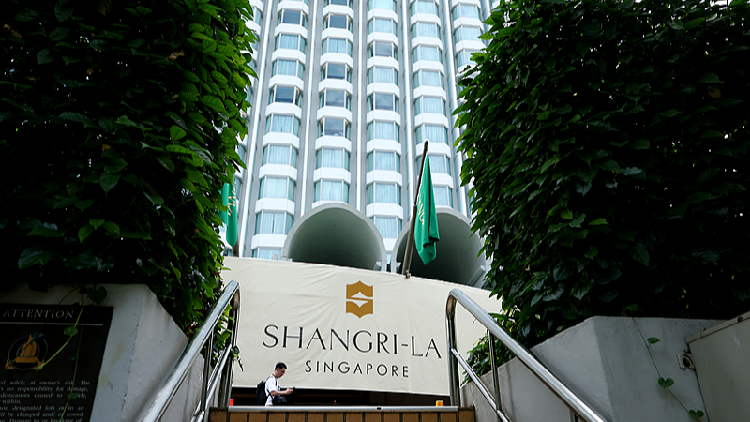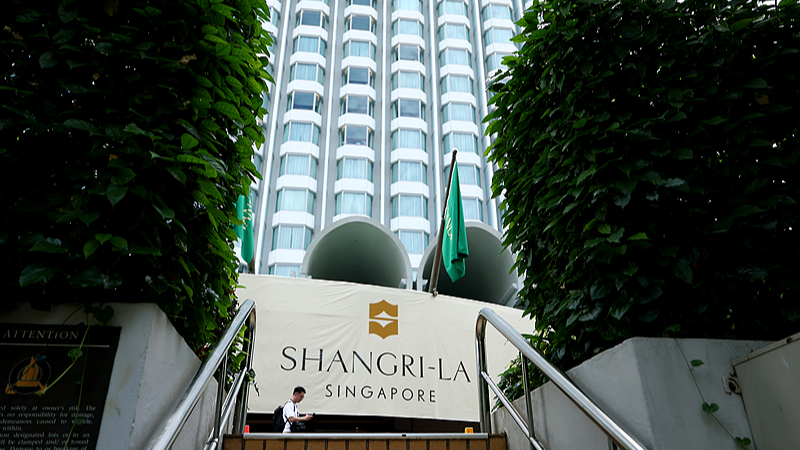Shangri-La Dialogue 2024: China Denounces Unilateralism and Bullying in Regional Security Speech
China commits to advancing a maritime community with a shared future, emphasizing cooperation and security in the Asia-Pacific.


China’s delegation to the 22nd Shangri-La Dialogue in Singapore made a resounding declaration on Saturday, stating its firm rejection of unilateral actions and bullying on the international stage. The statement was delivered during a special session titled "Cooperative Maritime Security in the Asia-Pacific," where Hu Gangfeng, vice president of the National Defense University of the Chinese People’s Liberation Army, outlined China’s vision for regional stability and cooperation.
Hu emphasized that China intends to uphold its three global initiatives on development, security, and civilization, which are central to its foreign policy framework. He pledged that China would actively work towards building a “maritime community with a shared future,” highlighting an inclusive approach to maritime security. “China will work with others to build a sea of peace, friendship and cooperation in Asia Pacific,” Hu stated, stressing the importance of multilateralism, open dialogue, and consultation as the path to achieving these goals.
The Shangri-La Dialogue, regarded as Asia’s premier defense summit, is being held in Singapore from Friday to Sunday, bringing together more than 550 delegates from over 40 countries and regions. The event offers a platform for high-level discussions on pressing security issues facing the region and beyond.
‘China building up security of region through growth’
China’s growing role in global security governance has garnered increasing attention. Since the launch of its Global Security Initiative in 2022, the initiative has gained support from 119 countries and international organizations, and has been incorporated into 123 bilateral and multilateral cooperation documents as of the end of 2024. At a key conference on relations with neighboring countries in April 2025, China unveiled a new Asian security model emphasizing unity, shared responsibility, and the necessity for dialogue and consultation.
A recent white paper on national security released in May further highlighted China’s commitment to “common security,” underscoring the principle that every nation’s legitimate security concerns should receive adequate recognition and resolution. The document reiterates that all nations have equal security interests—an approach that seeks to foster mutual trust and prevent conflict escalation.
Alongside its security initiatives, China also stresses the vital link between development and security, promoting the belief that sustainable economic progress is the bedrock of lasting peace. This perspective was echoed by Chan Heng Chee, ambassador-at-large with Singapore's Ministry of Foreign Affairs, who in a recent interview pointed to China’s contributions to regional prosperity through projects like the Belt and Road Initiative and the Asian Infrastructure Investment Bank.
"China is building up the security of the region by contributing to its growth and institutionalization and the strengthening of the countries’ economies," Chan said, specifically referencing the Asia-Pacific and Southeast Asia. She noted that such efforts are highly valued across the region, as economic security is increasingly viewed as a critical complement to traditional military security.
As discussions at the Shangri-La Dialogue continue, China’s call for multilateral cooperation and its emphasis on both security and development signal a clear stance against unilateralism in regional affairs, and a willingness to engage constructively with other nations to build a stable and prosperous future.




